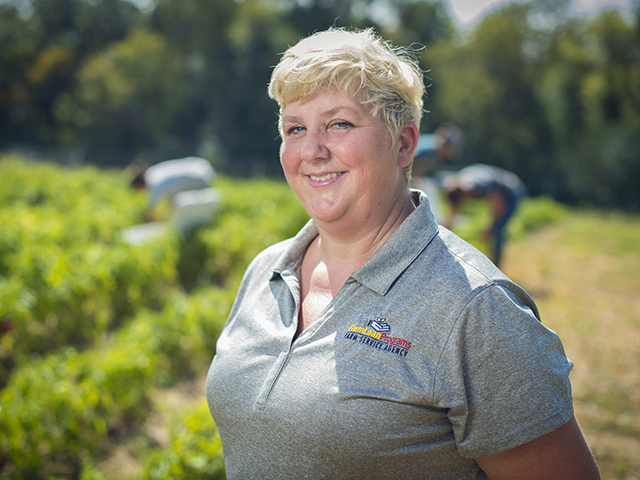Plot a Course
Farmer Support - Plot a Course
Land access is one of the main obstacles for beginning farmers. But, guides are available during their land-acquisition journey.
Farmland access navigators help aspiring farmers in Iowa, Minnesota and Wisconsin prepare, search and acquire farmland tenure. The service is provided by The Farmland Access Hub, a consortium of partners such as nonprofits, government agencies, local companies and private citizens.
The Hub is a multiyear project partly financed by a $600,000 USDA Beginning Farmer and Rancher Development Program grant, which provides people the strategies, tools and resources to overcome a major impediment to begin farming: land access. The project is led by Renewing the Countryside, a Minnesota-based nonprofit organization working to reinvigorate rural America through sustainable and innovative initiatives, in partnership with Practical Farmers of Iowa.
Most farmland access navigators are farmers, as well. They often use their own experience and business savvy to help clients -- many a generation or two removed from the farm. This includes the complexities of financing options, lease agreements and zoning regulations, among other things.
Kate Edwards is a part-time farmland access navigator and full-time vegetable farmer near Iowa City, Iowa. She recently received a USDA Farm Service Agency (FSA) loan to buy a small farm, which makes it easier to walk beginning farmers through that process.
"We work with a wide variety of operations, from row crops, livestock and vegetables," Edwards says. "The basic thing it comes down to is people who want to farm but don't have access to family land. We provide a listening ear and advocate for young farmers without a lot of resources."
HELPING HAND
Here's how navigators helps beginning farmers:
> clarify the farmers' goals
P[L1] D[0x0] M[300x250] OOP[F] ADUNIT[] T[]
> identify priorities for suitable farmland
> foster and build networks to help in the search
> develop basic literacy about types of financing available
> review personal financial readiness
> provide specialized knowledge, expertise and connections to professionals for further assistance
> assess the readiness of technical and practical farming skills
> study elements of good and equitable farmland leases and purchases
> review suitability of specific farms.
OPPORTUNITY
During the first three years of the land-access project (2017-2019), 76 farmers worked directly with farmland access navigators, according to Renewing the Countryside. About half of those improved their land-access situation, meaning they secured or signed better leases, or purchased farmland.
About 300 people attended Farmland Access literacy workshops since 2018, and 44 attended three Farmland Access boot camps, intense one-day seminars hosted by navigators in participating states.
"Programs like this are helping," says Jan Joannides, Renewing the Countryside executive director.
Mary Glaspie, an FSA farm loan manager in Iowa County, Iowa, says opportunities exist for beginning farmers to acquire farmland and produce food and fiber for a living.
"That dream is very much alive," Glaspie says. "The FSA has programs available to beginning and non-beginning farmers, with no limit on age, to help buy or rent land."
**
For More Information:
> www.gotfarmland.org
> www.fsa.usda.gov/programs-and-services/farm-loan-programs/beginning-farmers-and-ranchers-loans/index
> Follow Matthew Wilde on Twitter @progressivwilde.
[PF_0321]
(c) Copyright 2021 DTN, LLC. All rights reserved.




